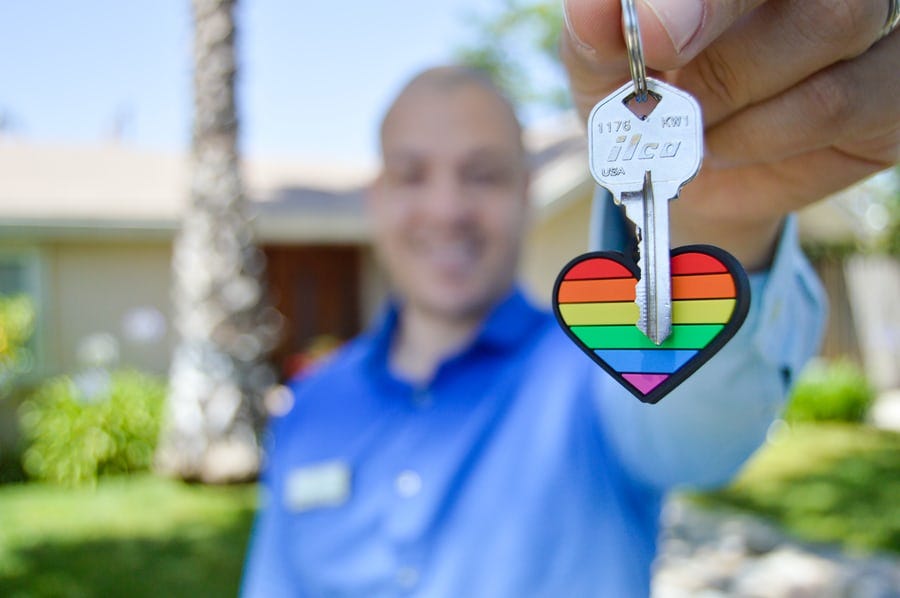Passive income is a phrase that is tossed around these days because it’s deemed as an easy and endless way to earn money while asleep or partying. There is nothing that works properly that is easy and fun at first. Generating passive income takes more time commitment, money, dedication, and hope upfront that most aren’t willing to sacrifice for a (possible) return down the road. No guaranteed. The bigger the risk, the bigger the reward, and well, loss.
In this category, investing in assets, real estate and side hustles come into play. For ultimate financial success, it is recommended to have 2–3 side passive income streams. The more the better but that is typical because, after that many, you most likely are doing a lazy job biting off more than you can chew.
Real estate has become increasingly popular during the pandemic as the surge for suburban homes, land, and more space means higher prices and crazy competition.
This housing market is largely driven by 2 factors which hasn’t happened in this grand of a way since the Great Depression:
1) Shortage of available housing inventory
2) Extremely low-interest rates
Hence, that’s why the richer are getting richer. Pandemics, recessions, crises, economic busts, whatever you want to call it are made for the rich. You can easily determine if you are well off and comfortable by observing your financial situation when things get tight.
Lower to middle-income families aren’t focused on the stock market these days. They are concerned about being able to pay off their rent and not wait on line for the first time at a food bank. There are always more opportunities provided to those who are at the top.
Compared to last year, there has been double-digital annual growth in both list and sale prices showing a lack of inventory and incredible demand rising to a 14-year high. Seasonally adjusted home values rose by 2.9% between September and the end of 2020, and the rise of total of 7% is predicted till September 2021.

So how can you get in on the action without owning anything?
Well, just because it’s on sale doesn’t mean you are saving money.
For most readers who are in their early teens to Millenials, it can still be early to purchase or even rent a place of your own. But that doesn’t mean we cannot profit from this incredible market that only happens during the worst economic cycles!
As with real estate, you have 2 options.
You can buy a home in a leafy green, sunnyside friendly community that actually will raise the value of your property or rent out the upstairs of your home on Airbnb or a separate property on your own.
If space is an issue, which it always is in the most in-demand cities, there are other options that do not require you to have physical space or inventory. There is also a way to remove the hassle of taking care of a property, something people usually consider when they think of estates.
It isn’t real after all.

While on that topic, let’s discuss the misconceptions about real estate:
Myth #1: Any property is worth it
Just because it’s a physical tangible place, doesn’t mean it is in demand or will go up in value in 5 years. You still have to do all your research, due diligence, snoop the neighborhood and look into the past history of the property to make sure it isn’t known as the haunted house of the village. It isn’t an asset until you can guarantee nothing is fishy.
Myth #2: Renting is the Easiest Way to Make a Full Salary Income
It sure is a nice chunk of change each month but at the start, you could easily and most likely will be losing money on your own property! Doesn’t make sense right? Well, depending on how much work needs to be done, the liabilities, home insurance, maintenance, contracts, and negotiations between heating, broker fees, moving fees, renovation, construction, water, gas, etc. bill btw. yourself (the landlord) and the renters, you could easily see a month or two of rent already down the drain due to these responsibilities that come with every renter every few years. It isn’t a money-making machine unless you nurture it.
Myth #3: Every Property in a Great Neighborhood Has to Go Up
This seems like it would be the case until something disastrous might happen or the school goes broke. Whenever you purchase a piece of real estate, understand what makes it go up in value. Is it because it is located in a community with a great school or nice outdoor space to jog and do weekend pilates or close to the city but a nice distance away in suburbia? I would always suggest pinpointing more than 2 things about the place just in case something goes down or a lawsuit hits, there will still be demand for the property based on the other things that the place has to provide.
Diversify, diversify, diversify!
Myth #4: Real Estate is the Best Debt
It can get very tempting to see one of your rental properties doing well and the family is enjoying the place planning to stay there for a few years to raise their kids. This sparks a pulling urge in your gut to want to immediately buy another property in the same town or test out a new market. Unless you have millions of dollars in cash which is not recommended one bit due to the purchasing price decreasing in value by 2% these days due to inflation, you are going to have to get a mortgage. The more mortgages you have, the less trustworthy you are simply because you owe the bank more money, even if you have the best credit score in the world.
As a refresh, there are two types of debt:
Good Debt: Used for investments such as properties, business loan or education in hopes of appreciating in value in the future
Bad Debt: Used for depreciating liabilities such as luxury goods, car payments, credit car bills
Although properties and real estate fall under ‘good debt’, it is still debt and must be prioritized. These monthly payments along with the additional payments of your property(s)’ maintenance, home insurance, renters’ insurance, etc. all add up!
Myth #5: See you When the Contract Ends Renters!
Just becuase you made a done deal for the next 2 years to not raise the rent for your renters and keep them there, doesn’t mean you won’t see them again, very, very soon. In fact, you will most likely have to get to know each other, whether you like it or not because as with everything, problems always arise. Whether it’s a leak or broken dishwasher, it isn’t their responsibility to fix it.
You guessed it. It’s yours!
They are just paying to live there like in a hotel or Airbnb, not be the handyman.
Almost every weekend my mother and I get texts from our renters that the lightbulb is broken or the shelf in the closet is cracked. Anything that they didn’t do or own, is your responsibility as an owner.
Some people may or may not be able to handle all of this, especially with the more properties you own. In that case, I would advise asking a management company to supervise the tenants for you so you don’t have to be the weekend repair dude or toilet plunger when your renters become unknowledgeable about how to turn the stove on.
Happens more than you think. People are pretty dumb when it comes to common sense. Thanks, school.
Now that I’ve frightened you about the rental process. Rest assured, you can still get in on the big change not even owning a single brick.

REITs
REIT is a company that simply owns, operates, and finances income-generating real east. It is similar to the way mutual funds are operated where they are pools of the capital of numerous investors, investing in real estate on your behalf. So anyone can earn dividends from real estate.
They are publicly traded like stocks so they are fairly liquid, unlike physical real estate investments where cashing out the equity from a property takes time to sell. This is what happened in the financial crisis of 2008. You never want to have more than 40% of your net worth tied to real estate because it will be difficult to get that money back in time of crisis when banks such as Lehman Brothers or Bear Sterns, two banks that went bankrupt gave default faulty AUMS mortgages to home buyers who couldn’t afford them.
Types of REITs:
Equity REITs: Most are made up of equity, which owns and manages income-producing real estate. THis revenue is generated through rental properties
Mortgage REITs: These REITs lend money to real estate owners and operators through mortgage loans
Hybrid REITs: Mix of equity and mortgage REITs
Now how can a 20 something-year-old actually get a hold of this?
With investing, time is of the essence. The earlier the better. Whether you trade on Fidelity, Vanguard, or even Robinhood (the retail investing app), the broker will help you purchase shares in publicly-traded REITs.
But is it worth the money and possible risk?
Pros
-Liquidity
-Diversification
-Transparency
-Stable cash flow through dividends
-Attractive risk-adjusted returns
Cons
Low growth
-Dividends are taxed as regular income
-Subject to market risk
-Potential for high management and transaction fees

It is possible that everyone in the United States can own some piece of real estate. Yet, since investing isn’t taught in school, that is challenging but isn’t once you understand how REITs is just investing any other asset.
As we’ve learned that real estate takes diligence, patience, time, compromise, and money up front to generate stable income from tenants, that might not be for everyone, especially if you are working full time and cannot afford to be a weekend babysitter for the property. The older you get, the more you can evaluate which option is best for you, but regardless of your age, if you are over 18, there is no reason you shouldn’t be waiting on investing $100 into a REIT to see immense returns by the time you buy your first property!
Everyone always needs a place to live, real estate is here to stay!

